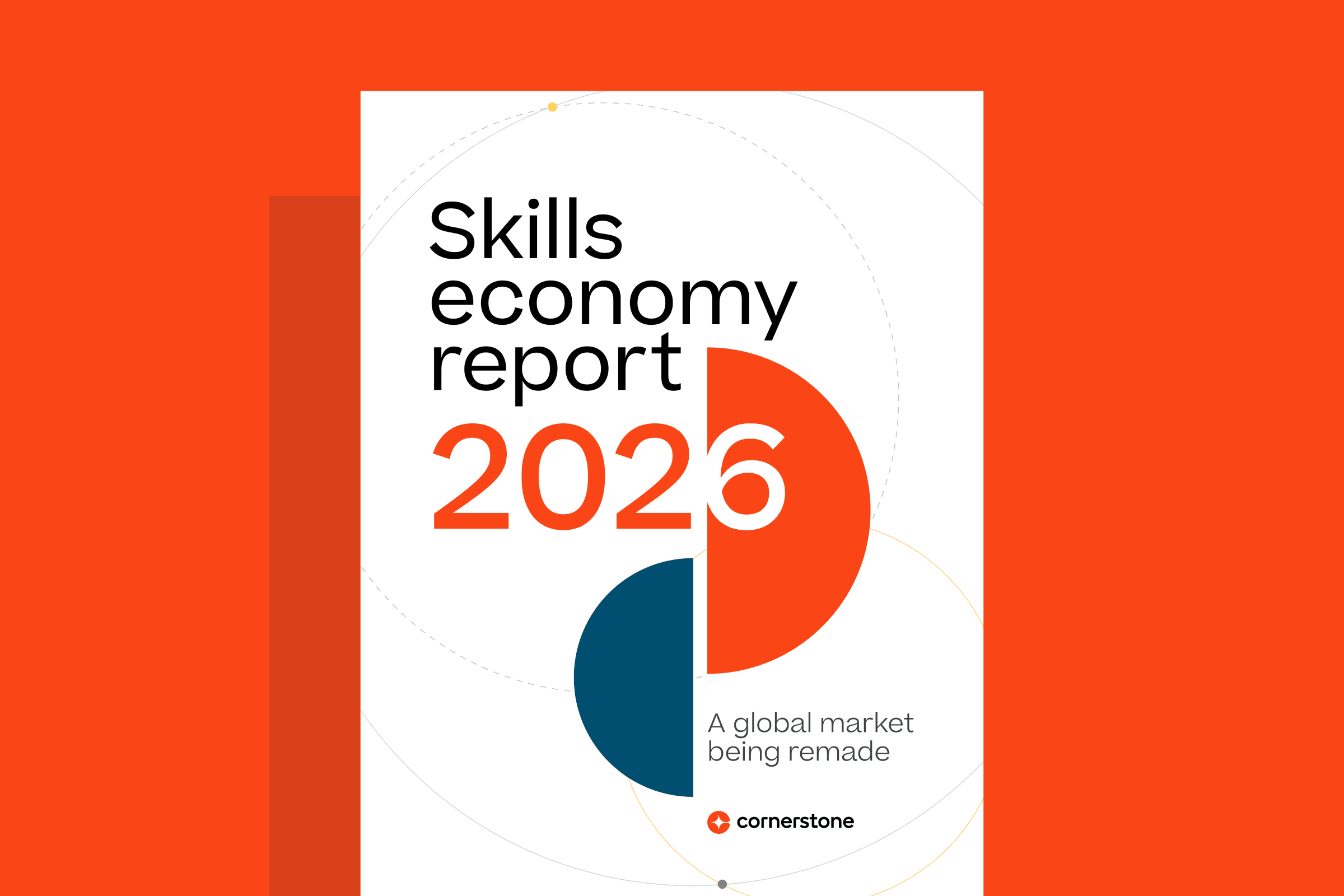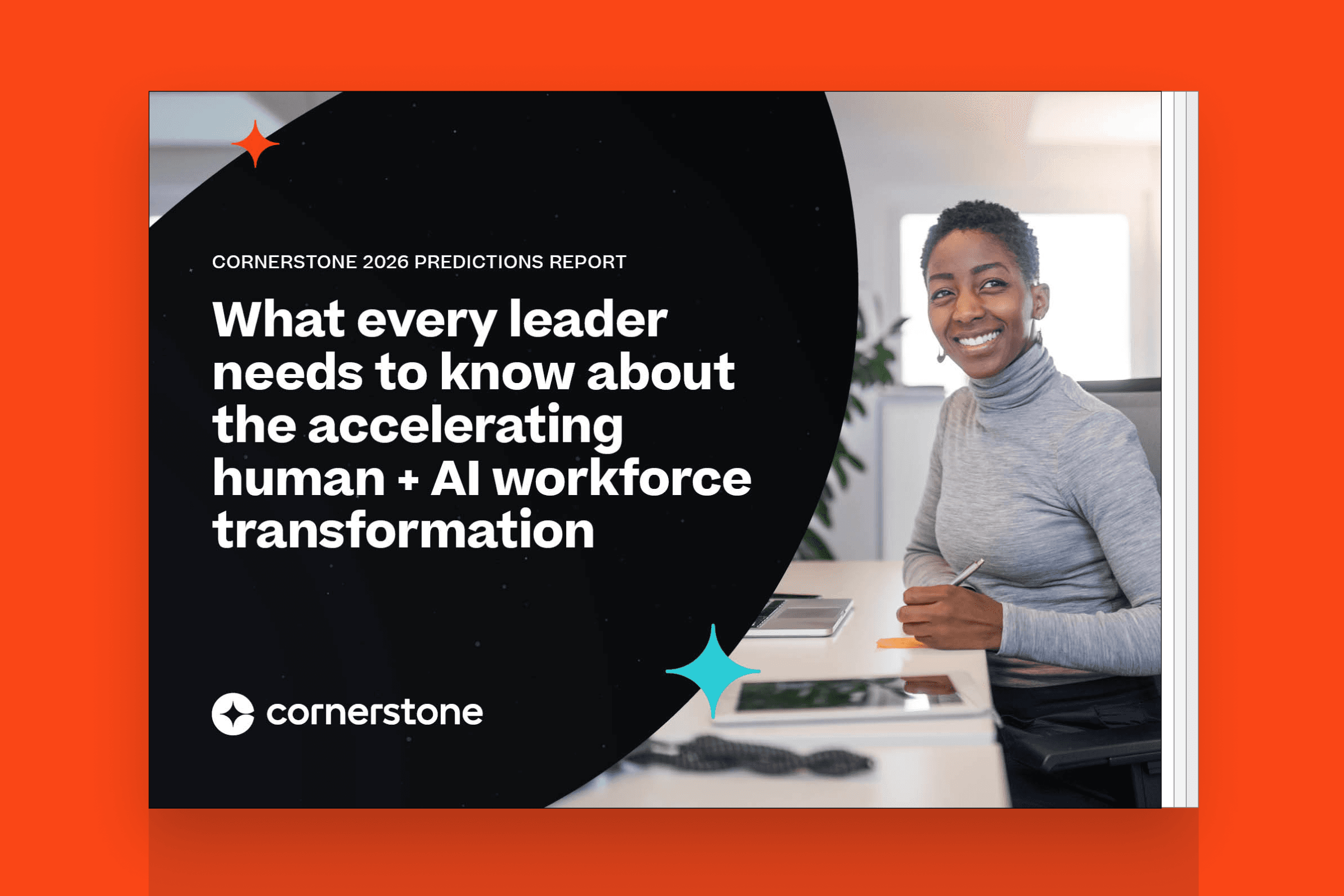Companies entering 2020 were already set to face their own unique changes, from growing skills gaps to the continued rise of technologies like AI and automation. More and more companies are looking to provide employees with learning opportunities to help them adapt to these shifts. Encouraging and enabling skill development on an organization-wide level will ultimately foster an environment for growth.
But learning during times of change can be extremely difficult. We’re seeing this currently amid the COVID-19 crisis. Expanding employee skill sets increases adaptability and prepares us for the next version of normal. The nuance is understanding that people need time to process and adapt before turning their attention to the future.
In fact, pushing learning opportunities on your staff at the wrong time could lead to them feeling unsupported or overwhelmed. Poorly timed new programs or opportunities have potential to be misconstrued as attempts to wash over the adjustment period—moving directly into how to profit moving forward. By understanding how employees move through change, managers can more aptly assess when to encourage growth, how to support individual team members and successfully innovate through big moments of change.
Start by Understanding the Stages of Change
As change happens within an organization or in broader society, employees will need time to acclimate and move through what expert Ann Salerno calls the change cycle. Everyone experiences the same five stages in the same order—starting with loss, doubt and discomfort followed by discovery, understanding and integration—but at different rates and in different ways,
The early stages of loss and doubt are not the time for learning, according to Cornerstone VP, Strategic Initiatives, Mike Bollinger.
"Change is typically about loss—it's not the way it used to be," he said on an episode of Cornerstone’s podcast, HR Labs. "Managers have to be mindful of the individual employee's state, if you will. Are they in a loss? That's not the time to insert a new set of learning. That's just going to create more discomfort and more doubt. Rather, find ways to make them comfortable so that they can grow."
As employees process feelings of loss and doubt, listen to them, field questions and create a space for voices to be heard. Eventually, employees reach a discovery stage where "how can I do this?" replaces thoughts of "I can't do this" or "I don't want to do this." Business leaders need to prepare to support employees with learning at this key moment. This, Bollinger says, is the time to implement company-wide learning opportunities.
For example, Cornerstone’s platform saw a 40% increase in user logins during March 2020, many of which were centered on topics like "tips for working remotely"—evidence that, as employees were adapting to their new circumstances, many looked to learning for support. Simply making sure people know how to find the resources they need can help employees feel empowered to overcome change more quickly.
To Lead Through Change, Practice Empathy
Because everyone moves through change at different paces, not everyone will be ready for learning opportunities at the same moment. That means it’s up to managers to be tuned-in to how their employees are feeling during the change process. Setting up systems for more individualized check-ins can help ensure that no one is being rushed through the process.
Remember: these are not performance reviews. Instead they’re conversations that start on a human level—things like, how are you coping? How are you feeling?—before moving onto work-related topics.
"You have to be genuinely curious during the check-ins," Bollinger said. "You’ve got to be incredibly open and vulnerable because your employees are listening for clues and authenticity."
The more comfortable employees get with change, the more they’ll look to learning. Bollinger says that Bob Mosher’s five moments of need can help explain when employees are likely to look for learning in various ways:
- To learn something new
- To expand on something they’ve already learned
- To try to apply something they’ve learned
- To solve a problem
- To correct something that’s gone wrong
Often, finding out what they need is as simple as asking: Research suggests 55% of employees, when they’re looking for learning, will start by asking a colleague.
Bollinger says it’s critical that managers make good suggestions. And doing so requires that managers themselves be actively learning, so they can recommend courses that they’ve taken that were useful, or guide employees to a particular type of course. Understanding how the employee learns best should also guide this advice.
Managers should be on the lookout for these circumstances and drive employees to the right courses for support.
A Formula for Learning Through Any Kind of Change
Employees are likely adjusting to the current remote work environment created by COVID-19. There have likely been layoffs, pay cuts and culture shifts. But many are adapting and already seeking out learning, signalling that there’s a growing level of comfort with change. This is the time to reflect as business leaders and address what resources you have made available to your employees. If these resources are there, they need to be properly communicated company-wide.
Change is always going to happen. On the other side of this pandemic, we’ll continue to acclimate to new normals. This approach to learning can be applied to any change cycle, at any scale. It is about providing your staff with the tools needed to succeed and understanding them on a human level.


